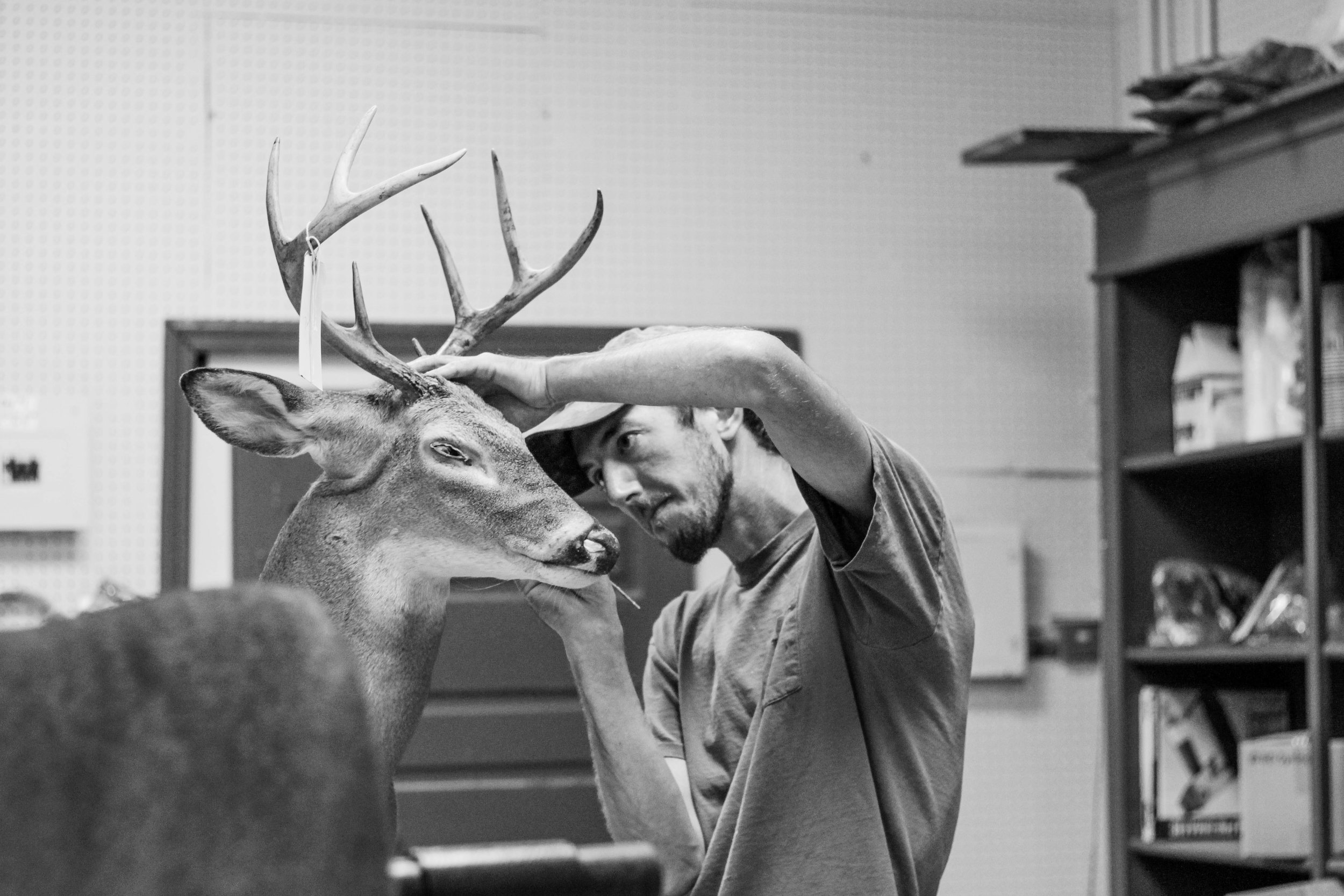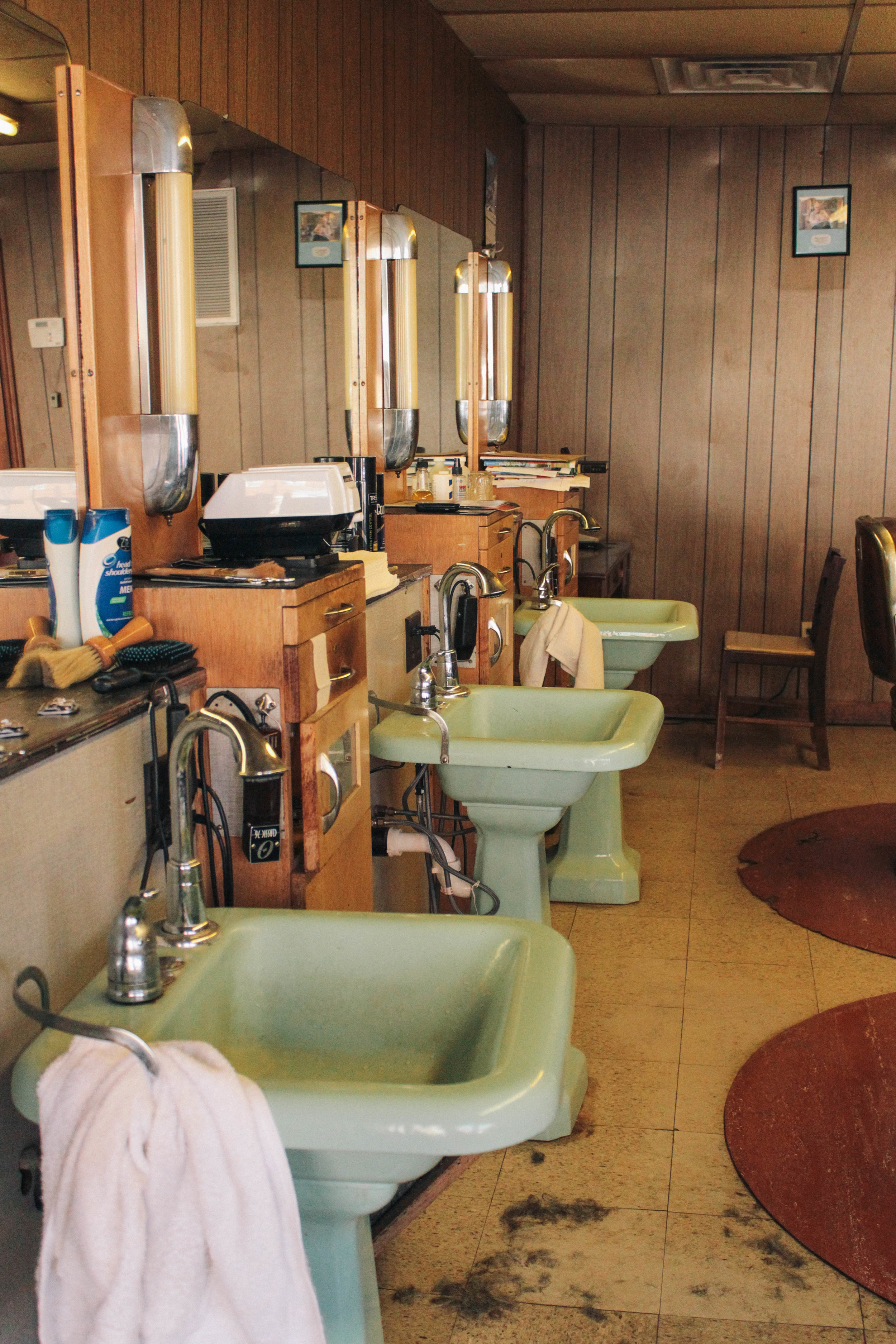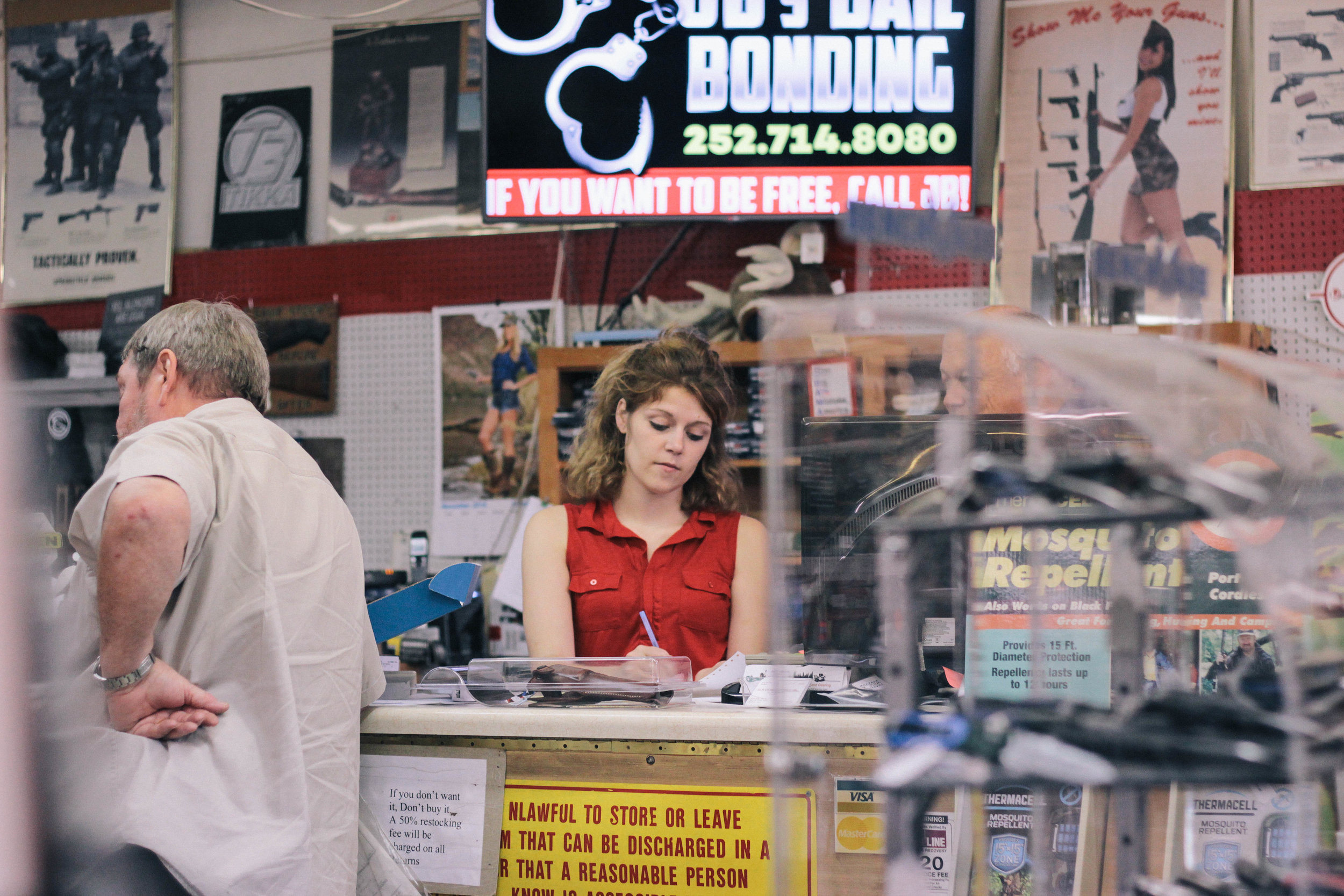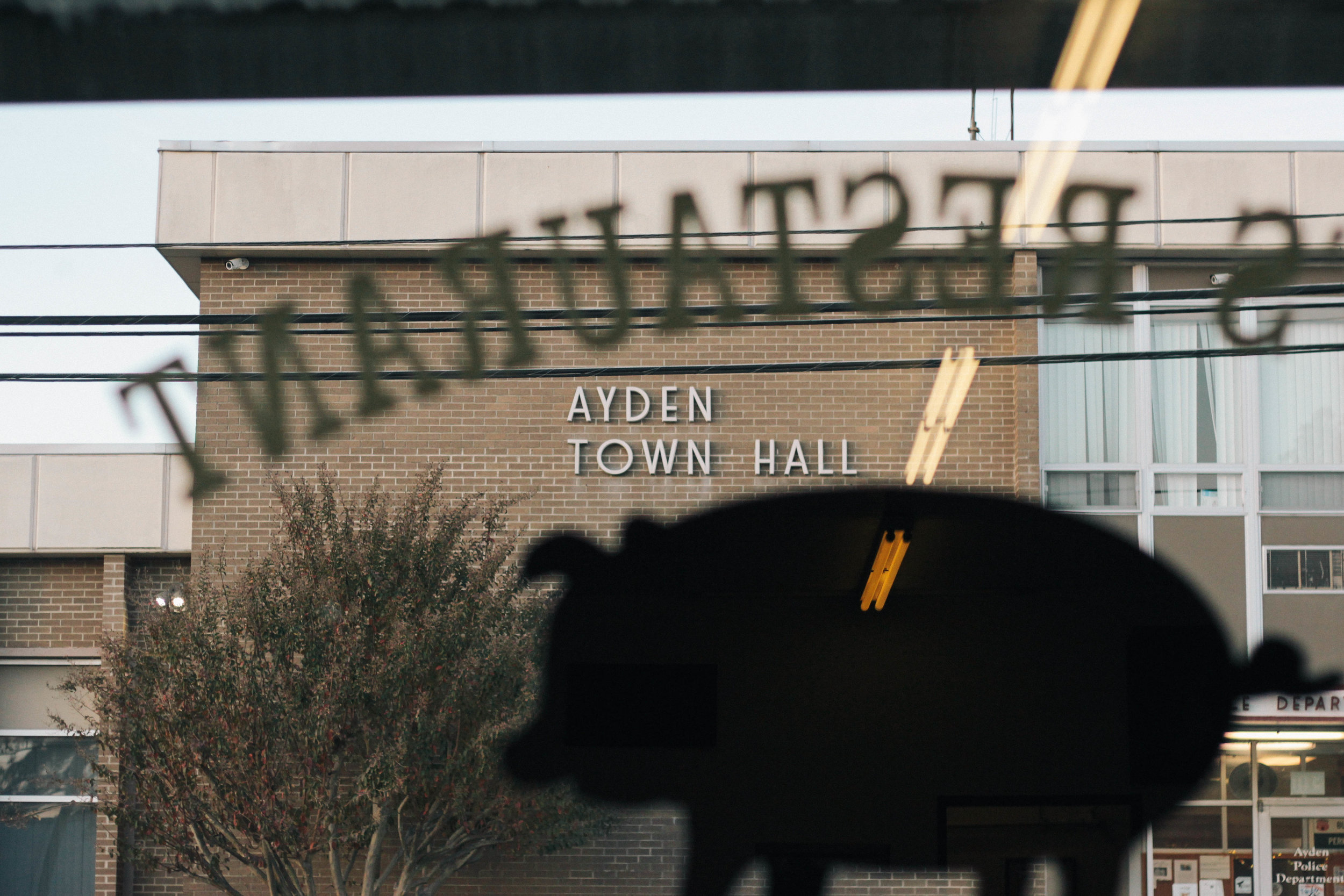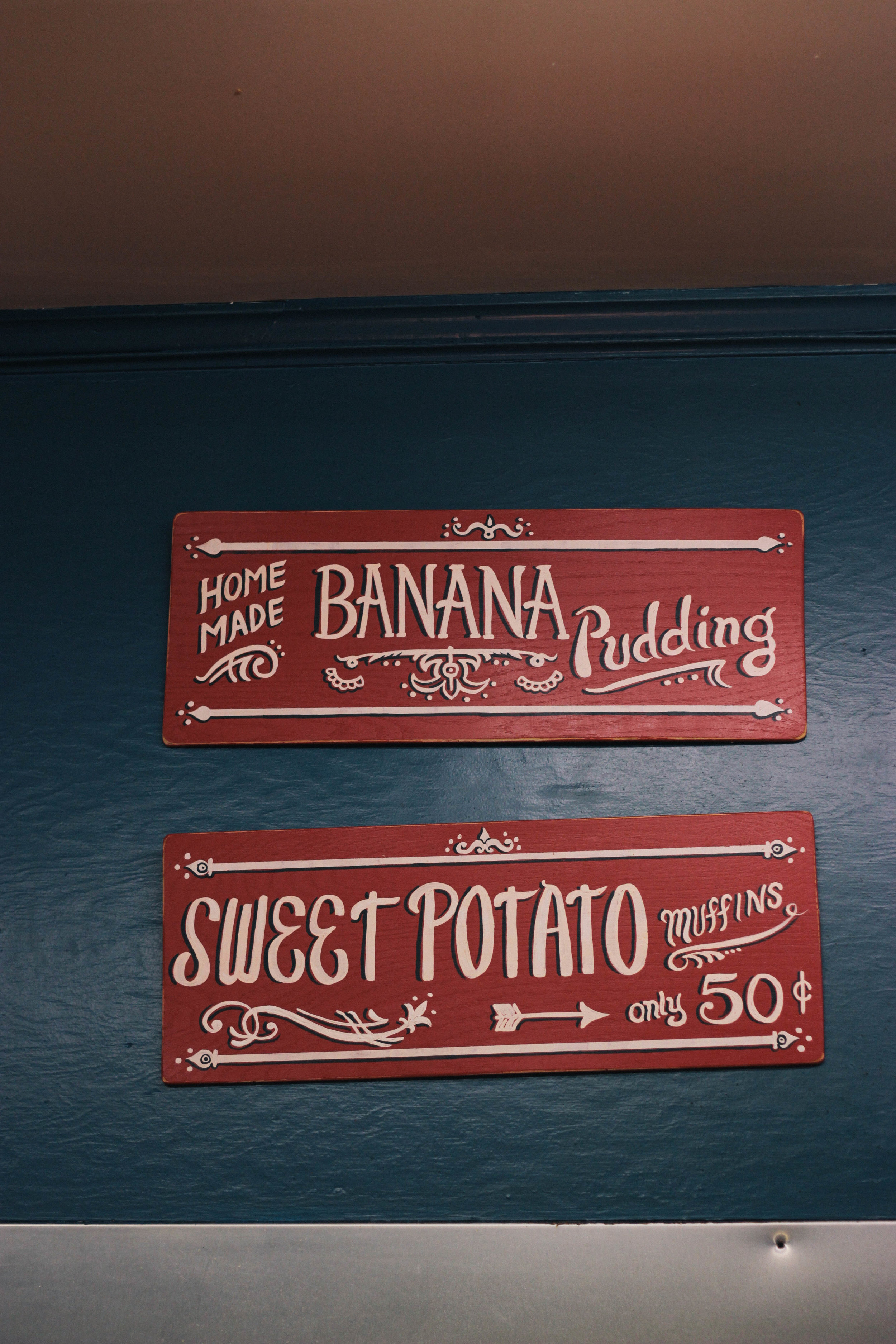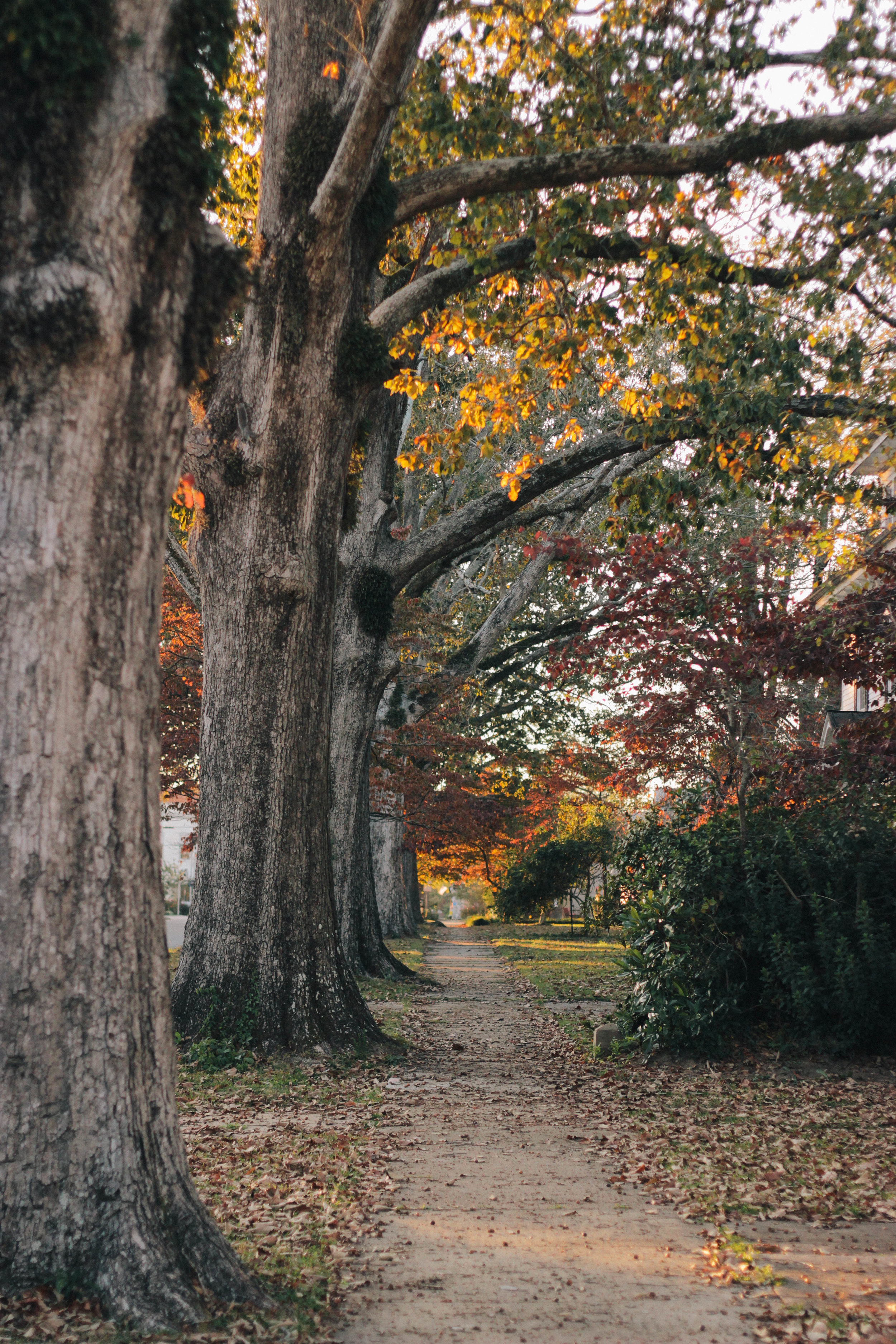Small Town Profile: Ayden
Ayden: a town brimming with stories, nestled into the flat fields and pine trees of Eastern North Carolina. Like many communities, Ayden got its start as a railroad town; the tracks still run through its heart. The tale goes that when it came time to pick an official name in 1891 the Postmaster took his globe, gave it a spin, and picked the name from where his finger landed - Aden, a port city in Yemen. The town fathers added a Y and so the town of Ayden was born. At its height the town was home to a semiprofessional baseball team, a hotel, two movie theaters, multiple groceries, a major train depot, two mills, two banks, two colleges, and a pair of large factories. It was the host of four Doctor Dixons (one father-son pair, and two not related at all) and a dentist.
While by big city standards this may not sound impressive, to small town residents like myself it sounds like the town was humming. The town has seen its fair share of push and pull, beauty and pain, downturns and building itself back up; and in all of this, a beautiful community has emerged. Although not perfect, it is and has been a warm and friendly place (imagine Mayberry, then multiply that times two or three). I was first introduced to the town of Ayden when I was about eighteen, when my grandfather moved there after marrying my now- grandmother (a good call on both counts). What I remember telling people after my first visit is that everyone in town is like a character from your favorite childhood book. From Bum's Barbecue to the used book store, Ayden is littered with people who will welcome you at the drop of a hat, and probably tell you a good story while they're at it. When I walked the town for two afternoons in November to gather photos for this essay, I realized that there is no way to photograph how many times a day people call you darlin', ask how you're doing, or offer you kindness. But I could photograph the town, the shops, and the hardworking people who run the place. So, here it is; Ayden, as best as I could capture it.
The town is home to wide front porches and beautiful wooden structures from several different eras. Although the paint may be peeling on some of these houses, they never look unfriendly to a visitor's eye - just in need of a little love.
Ayden is just the sort of place where you expect to find a pretty bouquet of tulips in the window.
Just outside of Ayden proper is Pete Jone's Skylight Inn Barbecue. If you didn't know how seriously the citizens of North Carolina take their barbecue, now you do; this restaurant made a replica of the Capital Dome to reflect the illustrious position of their wood-cooked 'cue.
Remember how I mentioned serious, wood-cooked barbecue? Well, it takes a serious amount of wood to satisfy the makers of this barbecue (this is only about half of the piles that are back behind the restaurant).
Another thing you should know about Ayden: It is known for its collards (for those of you who have not been introduced to them, they are a leafy green similar to cabbage but veiny, tougher, and more flavorful). Ayden is the home each year to the Collard Festival, in which the plant is celebrated. Craft fairs are thrown, barbecue competitions are had, a parade is given, and a Collard Queen is crowned. You will see several homages to these green leaves throughout the town - so keep your eyes peeled!
The Collins grain mill; long out of use, but one of the economic boons of the place when it was a railway center.
To those of my readers who do not live in southern North America: this is what cotton looks like in its unharvested form. When it comes time, the fluffy stuff it is packed into bales like hay, and driven away; you can usually find stray fluff on the side of the road when it is being transported for processing. Cotton is one of Ayden's largest crops, along with peanuts and tobacco.
Doctor Grady Dixon has acquired something of a legendary status in Ayden. Although he appeared to be a salty, gruff character (known for scolding his patients, "I wouldn't have to treat you if you'd take care of your damn self"), he was well-loved for his heart of gold. Doctor Dixon was present for many of the births and deaths in the town for over forty years, and could always be called upon for help. Even throughout the Depression, he continued to treat the town - sometimes to his own loss. Of course, a person generally does not achieve legendary status by kindness alone; Doctor Dixon had his share of quirks. He was known to ride his bicycle smack dab in the middle of the street. All vehicles (including trains) simply had to stop for him. Eventually he passed the mantle on to his son, the second Doctor Dixon, who continued the practice (and eccentricity) in his father's stead.
Andrea Norris, town historian and head of the Ayden Historical and Arts Society, was kind enough to meet up with me. After sharing her treasure trove of stories and photographs, she gave me a tour of a couple of Ayden's historic buildings. In true southern fashion, she left me with a good tale to tell and (of course) delicious food.
We are now back in the center of town. That white building used to be the drugstore, but now functions as a bakery (heavenly smells hit you as soon as you walk in the door).
The old Town Hall, which also happened to serve as the jail back in the day. When Andrea offered to let me in for a look, I jumped at the chance. Although the cells never housed any big-time criminals, in the thirties it did serve as a makeshift home for some baseball players that came through town when the hotel was already full.
The cells are a distant cousin of portable storage sheds; each standalone, woven-metal square is equipped with a sink, toilet, two bunks, and a heavy door that can be padlocked shut. Thanks to a lively bootlegging scene and little other crime, most of the inmates only stayed for short periods of time. Bootlegging and moonshining have had a strong presence in the tastebuds and lore of the surrounding counties. One of my favorite stories associated with liquor in the area was about a community grandmother who made the best moonshine in town during the Depression. My source was a bit shocked by this revelation (which came about thirty years after the fact), since the matriarch had been an upstanding member of the Baptist church and a revered figure in the neighborhood. She operated her business without violating her conscience, however; she never drank any of the brew she sold. She was never caught, and never had to spend a night in any of Ayden's cells.
Although the 'Institutional Green' paint is chipping off, its remnants are all over the jail.
Graffiti and carvings are all throughout the jail cells and the outer walls.
The two pre-Depression banks (now closed) have some of the most notable tile work and architecture in town.
The nice lady in the bookshop two doors down let me into the Ayden Bank, which is now an antique shop open on weekends. The bank was full of many pleasant surprises, the first of which being...
Upstairs there was a board room (just like It's a Wonderful Life!) and a long-abandoned dentist office, which is now used for storage.
Since shutting its doors in the fifties, the Bank of Ayden building has served many purposes; it has been a guitar store, a church, an electronic repair store, and now an antique shop.
Inside of Andy's Grill, the burger joint just down the street from the bank. Having hunted in Canada, Wyoming, both the Dakotas and North Carolina, the owner thought it appropriate to display his prizes in the restaurant. It helps to set the mood as duel restaurant and recreation center, as pool tables and old-fashioned video games (Pac-Man or Frogger, anyone?) line the walls.
Harrell's Taxidermy, in business for thirteen years and counting. Walking into this shop there was a sharp, distinct smell from the preservative chemicals. Not unpleasant, but certainly pungent.
Gary, (the owner) who was kind enough to let me poke around the shop and pepper him with questions. I learned so much from just asking business owners about their trade, for instance: did you know that a deer takes about a month to properly preserve?
Gary told me that the most exotic animal he has worked with is a zebra (this was mere seconds before I almost knocked over a bear that was standing awaiting display - fortunately the bear was unharmed, because he also told me bears and swans are the most difficult to manage).
Murals! And old windows! And low-hanging telephone lines (which were the bane of my existence during this shoot)! All of this is just across from the barbershop.
Doug Williams, the barbershop's proud owner and operator. Over the 70's spy thriller that was playing in the background, he told me he had been cutting hair there for fifty years in the very chairs he remembers sitting in as a boy. Out of a family with five boys, three of them went on to be barbers. It was a dependable and available trade to be in, with no jobs to be had at the factory and college educations hard to come by. He's pleased to have maintained the barbershop, and that he has most of the good ole equipment (particularly the sturdy chairs and sinks). I left with the impression that Mr. Williams would welcome anyone who stopped by with a good chat and excellent company.
The gun store, where weaponry and hunting goods of all sorts can be found, along with enthusiastic conversation.
Pretty sure this gal was running the show. There was definitely a short-girls-who-like-to-get-things-done connection. :)
Our last stop in town, Bum's. Our family frequents this establishment we are in town, which is in no small part due to the owner. While serving traditional North Carolina barbecue and fixings, he greets everyone who walks in the door like a long-lost friend. Unfortunately he was out for the day when I was in town to shoot, so you will just have to take my word that he has a magnificent mustache and eyes that will tell you he has never met a stranger. If you ever want to know what's going on in town, just stop in at Bum's; you'll get caught up quickly, and probably have some banana pudding to boot.
If you are ever in Bum's, count and see how many pigs you can find in the place. Since pork is the most essential ingredient of a barbecue place, pigs are greatly celebrated in the decor.
In a classically Ayden turn of events, I bumped into these two chatting ladies while walking back to my home base. What were they talking about? How we have to learn to love each other better as neighbors, to endeavor to see life from another's perspective, and the value of hard work. As I walked the rest of the way down oak-lined Second Street, I decided that all of the trimmings of small towns (while charming) is not what makes them lovable. It is the people and stories who live in them.
For more on Ayden's hidden gems, visit the Save Historic Ayden Society page.















































